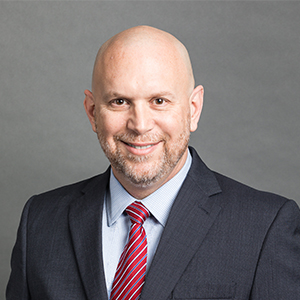
As Labor Day approaches and we all wish for a simpler time of beach trips, one of the things that I will miss the most this upcoming Labor Day weekend is the Blue Angels. My wife's family, a proud Air Force family, would remind me it is the Thunderbirds, not the Blue Angels, of which I should be writing. I grew up in Brooklyn, New York, and one of the highlights of the long weekend was always the Blue Angels flying over Coney Island Beach. It was always cool as a child to see something move so fast, make so much noise, and fly so close to each other without colliding. It wasn't until I was older that I realized that the precision flying was due to many hours of practice and each pilot knowing what their exact role was in the formation.
The Blue Angels and Thunderbirds spend many hours practicing for their shows, but
what most of us don't think about are the countless hours spent rehearsing what
to do in the case of an emergency. Each pilot rehearses emergency procedures
exhaustively so that their actions are second nature in the event of an
emergency. While some of you are inevitably pilots, we can all practice like
flyers on how to conduct ourselves in the case of emergency.
Every
region of the United States is susceptible to natural emergencies: wildfires on
the West Coast; flash floods and tornados in the Southwest; blizzards and
tornados in the Midwest, hurricanes in the South; and blizzards in the
Northeast. Additionally, every hospital system is now the target for
cyberattacks; and unfortunately, now we all must be prepared for mass shootings.
While we may not want to think about these emergencies, we must, none the less,
be prepared.
As medical professionals, each of you has a responsibility
to protect your patients and their personal information. The Centers for
Medicare and Medicaid Services mandates that every medical facility and
suppliers comply with the Emergency Preparedness Rule. Risk Management may
ultimately be responsible for the compliance, but each person in a medical
facility has a role to play.
Would you know what to do in the event a hurricane knocks out the power in your hospital (as I am editing this, the people of southeastern Texas and Louisiana are being battered by Hurricane Laura, and my prayers for safety are ongoing for them)? How about in the event of an evacuation in the face of a hurricane or wildfire?
Let's suppose you were in the middle of creating a new patient record in your hospital's RIS. After you had completed the patient's name and other identifiers, the power goes out. Typically, the facility's generator would kick in, but today it does not. What is your responsibility? Whom do you call? Is the correct person's phone number saved in your cell phone? What has happened to that patient's personal information? Has it been saved? Have your notes concerning their images been saved? Have you been trained for this type of incident?
Let's suppose that you receive an email from your co-worker asking you to log into your hospital's PACS to view information on a patient. While the email is in line with what your co-worker really might send, you do not notice that instead of the email coming from phil@xyzhospital.com, it came from phil@xyzhopsital.com. So you log into your PACS, and the link does not take you a patient record but instead gives you an error message. You then hit reply to the original email and send a message to your co-worker telling them about the error message. Within a minute or so, you receive a message from your email server telling you that the email could not be delivered because the email address does not exist. Or worse, the email is sent, and you never hear back from your co-worker. It is not until you pass them in a hallway that you ask them about the patient's record, and he or she has no idea what you are asking them. What should you do next? Whom should you contact first?
The purpose of CMS's Emergency Preparedness Rule ensures that you and your co-workers know exactly what to do and whom to contact in the scenarios above. While CMS does not mandate a specific method for the scenarios mentioned, they establish that there needs to be a plan should these events happen. Additionally, like the Blue Angel pilots, you should receive the appropriate training, rehearsal time, and feedback concerning your responsibilities and performance in an emergency situation.
While most hospitals and medical facilities hire people whose primary job is risk management, we all have our roles to play in emergencies.









 ©
- CMS Imaging, Inc. All Rights
Reserved
©
- CMS Imaging, Inc. All Rights
Reserved

Comments
Leave a Comment